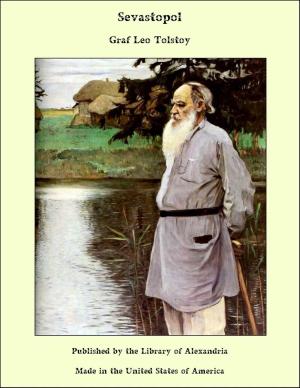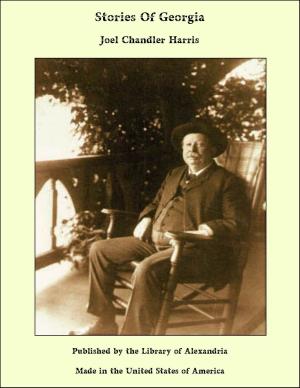| Author: | Edward Frederic Benson | ISBN: | 9781465620019 |
| Publisher: | Library of Alexandria | Publication: | March 8, 2015 |
| Imprint: | Language: | English |
| Author: | Edward Frederic Benson |
| ISBN: | 9781465620019 |
| Publisher: | Library of Alexandria |
| Publication: | March 8, 2015 |
| Imprint: | |
| Language: | English |
The hottest day of all days in the hottest June of all Junes was beginning to abate its burning, and the inhabitants of close-packed cities and their perspiring congregations cherished the hope that before long some semblance of briskness might return into the ardent streets. Providence, it would appear, justly resentful at the long-continued complaints that hot summers were altogether a thing of the past, had determined to show that something could still be done in that line, but this rejoinder, humorous at first, had long ago ceased to amuse. From morning till night for the last six weeks an unveiled sun had shed a terrific ray on to the baked pavements and reverberating house-walls, but to-day had beaten all previous records, and a solemn glee pervaded the meteorological offices, the reports of which seemed to claim a sort of proprietary credit in the readings of their incredible thermometers. Under these conditions it was with a sigh of relief that Arthur Craddock subsided into the corner-seat of a first-class smoking carriage at Paddington, finding that it was smoking, figuratively speaking, in less specialized a sense than that intended by the railway-company, for it had been standing for an hour or two in the sun outside the station. But he had clear notions about the risk of chill even on so hot a day, and when the train moved out from the dusky glass vault, he drew up the window beside which he sat, for it was impossible for him to take a seat with his back to the direction of progress, since the sight of receding landscape always made him feel slightly unwell. But, as he was alone in his carriage, there was no reason why he should not refresh his clay-coloured face with a mist of wall-flower scent which he squirted delicately over his forehead and closed eyes from a bottle in his silver-mounted dressing-case. Then he pulled down all the blinds in his carriage and sitting quite still in this restorative gloom indulged in pleasant anticipations. He was a very large stout person, wearing his hair, which was beginning to grow thin, though no hint of greyness invaded its sleek blackness, conspicuously long. Round his ears and the back of his head it was still thick, but it no longer felt capable of growth on the top of his high peaked head, and in consequence he brushed it from the territories on the left side of his head over the top of his bald skull, and mingled the extremities of these locks with those that grew on the territories on the right of his head. It might thus be hoped that short-sighted and unobservant persons would come to the gratifying conclusion that the thatch was complete. He wore a small reddish moustache which in the centre of his immense colourless face might remind a Biblical beholder of the Burning Bush in the desert of Sin, for he looked vaguely debauched (which he was not) and overfed (which was probable to the verge of certainty). His hands, of which he was exceedingly proud, were small and white and plump; they were carefully manicured and decorated with a couple of rings, each set with a large cabochon stone. When, as now, they were not otherwise occupied, he habitually used one of them to caress the side of this desert of Sin, as if to make sure that no whisker was surreptitiously sprouting there. In dress, though he was certainly old enough to know better, he affected the contemporary style of a fashionable young man, and his brown flannel suit had evidently the benediction of the tailor fresh upon it. His tie, in which was pinned a remarkably fine pearl, was slightly more vivid than his suit, but of the same colour as his socks, a smooth two inches of which appeared below his turned-up trousers, and his shirt had a stripe of the same colour as his tie. No watch-chain glittered on the amplitude where it would naturally repose, but on his left wrist he wore a narrow band of gold braid with a lady's watch set in it. A white straw hat and brown shoes were the alpha and omega of his costume.
The hottest day of all days in the hottest June of all Junes was beginning to abate its burning, and the inhabitants of close-packed cities and their perspiring congregations cherished the hope that before long some semblance of briskness might return into the ardent streets. Providence, it would appear, justly resentful at the long-continued complaints that hot summers were altogether a thing of the past, had determined to show that something could still be done in that line, but this rejoinder, humorous at first, had long ago ceased to amuse. From morning till night for the last six weeks an unveiled sun had shed a terrific ray on to the baked pavements and reverberating house-walls, but to-day had beaten all previous records, and a solemn glee pervaded the meteorological offices, the reports of which seemed to claim a sort of proprietary credit in the readings of their incredible thermometers. Under these conditions it was with a sigh of relief that Arthur Craddock subsided into the corner-seat of a first-class smoking carriage at Paddington, finding that it was smoking, figuratively speaking, in less specialized a sense than that intended by the railway-company, for it had been standing for an hour or two in the sun outside the station. But he had clear notions about the risk of chill even on so hot a day, and when the train moved out from the dusky glass vault, he drew up the window beside which he sat, for it was impossible for him to take a seat with his back to the direction of progress, since the sight of receding landscape always made him feel slightly unwell. But, as he was alone in his carriage, there was no reason why he should not refresh his clay-coloured face with a mist of wall-flower scent which he squirted delicately over his forehead and closed eyes from a bottle in his silver-mounted dressing-case. Then he pulled down all the blinds in his carriage and sitting quite still in this restorative gloom indulged in pleasant anticipations. He was a very large stout person, wearing his hair, which was beginning to grow thin, though no hint of greyness invaded its sleek blackness, conspicuously long. Round his ears and the back of his head it was still thick, but it no longer felt capable of growth on the top of his high peaked head, and in consequence he brushed it from the territories on the left side of his head over the top of his bald skull, and mingled the extremities of these locks with those that grew on the territories on the right of his head. It might thus be hoped that short-sighted and unobservant persons would come to the gratifying conclusion that the thatch was complete. He wore a small reddish moustache which in the centre of his immense colourless face might remind a Biblical beholder of the Burning Bush in the desert of Sin, for he looked vaguely debauched (which he was not) and overfed (which was probable to the verge of certainty). His hands, of which he was exceedingly proud, were small and white and plump; they were carefully manicured and decorated with a couple of rings, each set with a large cabochon stone. When, as now, they were not otherwise occupied, he habitually used one of them to caress the side of this desert of Sin, as if to make sure that no whisker was surreptitiously sprouting there. In dress, though he was certainly old enough to know better, he affected the contemporary style of a fashionable young man, and his brown flannel suit had evidently the benediction of the tailor fresh upon it. His tie, in which was pinned a remarkably fine pearl, was slightly more vivid than his suit, but of the same colour as his socks, a smooth two inches of which appeared below his turned-up trousers, and his shirt had a stripe of the same colour as his tie. No watch-chain glittered on the amplitude where it would naturally repose, but on his left wrist he wore a narrow band of gold braid with a lady's watch set in it. A white straw hat and brown shoes were the alpha and omega of his costume.















